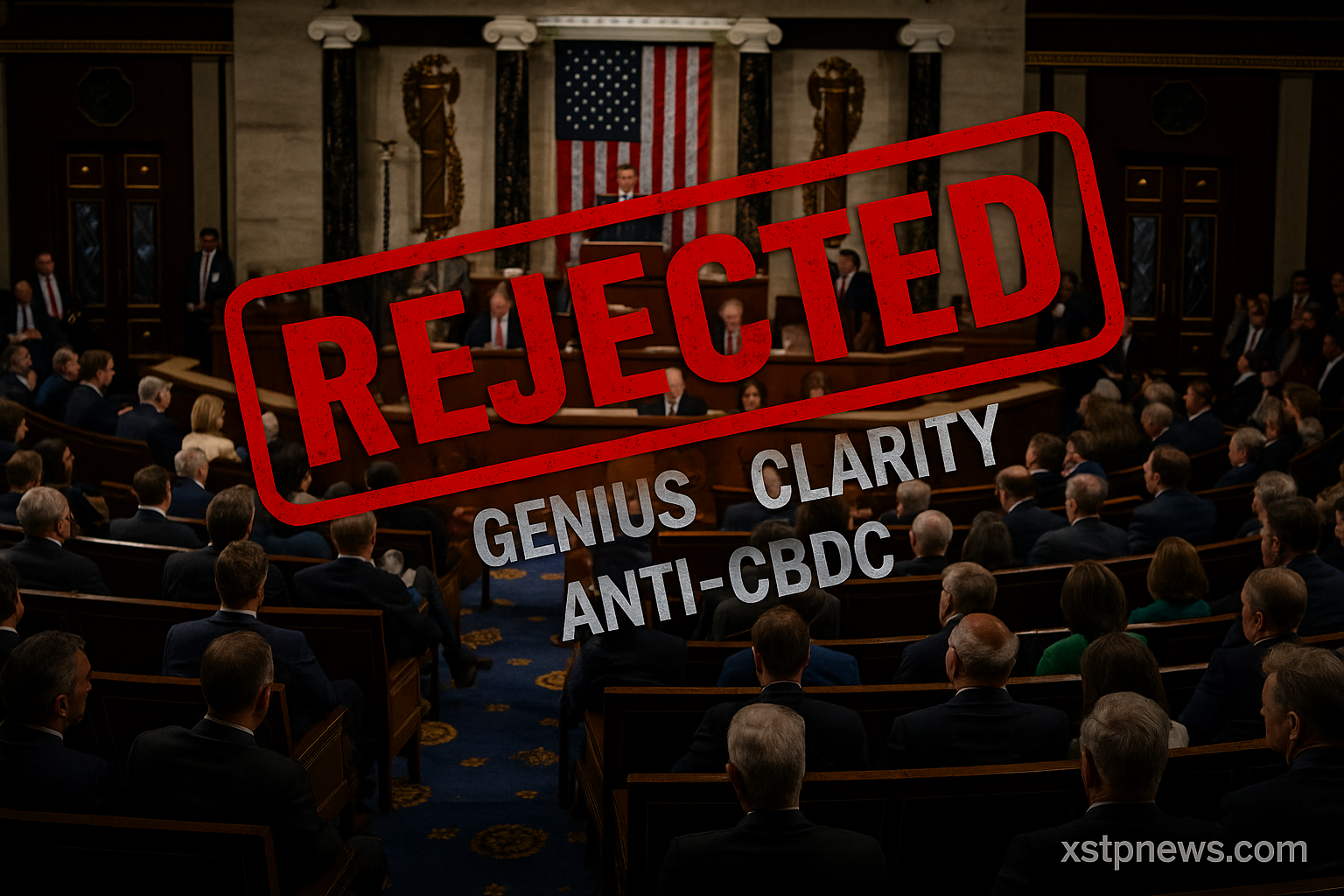A crucial week for US crypto policy ended with unexpected resistance. The House of Representatives failed to move forward on three headline bills. The Genius Act, the Clarity Act and the Anti CBDC Act all stalled after lawmakers rejected advancing the package.
A total of 210 Democrats and 13 Republicans voted against the measures. This effectively put on hold efforts to set clear rules for stablecoins, define oversight between the SEC and CFTC, and block any push for a US central bank digital currency.
This was supposed to be Crypto Week on Capitol Hill. Lawmakers had promised the most comprehensive look at digital asset legislation ever seen in Washington. Instead, the outcome exposed deep splits. Several Republicans argued the proposals needed more negotiation. Democrats largely opposed what they viewed as bills favoring big crypto players without enough safeguards for consumers.
Markets reacted immediately. Bitcoin slipped nearly three percent, retreating from highs it reached earlier on hopes for regulatory clarity. Stocks tied to the crypto sector also pulled back. Shares of Coinbase, MicroStrategy and blockchain firms dropped in step with the broader mood.
Analysts say the setback highlights just how tough it is to build consensus on crypto in the US. Even with bipartisan talks on individual parts of the agenda, bringing them together into a single plan proved too ambitious in the current political climate.
Leaders in the House signaled they might try again. Some are talking about merging the proposals into a streamlined bill or tackling them one by one after the August recess. But with elections coming closer, many warn the window for major crypto reform could be narrowing.
For now, the digital asset industry remains under the same fragmented landscape. Companies and investors will keep navigating a mix of state rules and uncertain federal signals.







